On March 27, 2020 Polotsk State University held the seminar “Development of training courses using modern innovative academic technologies to achieve best learning outcomes and to form key competencies needed by graduates in accordance with the requirements of the labor market”.
Over the past two years, the university has been actively improving the educational process and internationalizing the academic development. Almost every university staff member saw the results of this activity. A number of events are held to upgrade the university academic function. Among them are various forums with the participation of international world-class experts – Mr. Christian Hanzoyer and Mr. Marcus Steinmeyer (Germany), devoted to current issues of developing the internal quality assurance system, workshops and events on International Days at PSU.
International best practices are actively introduced to Polotsk State University. We mean cooperation with universities in Italy, Sweden and Estonia; academic student/staff mobility; international projects funded by TEMPUS, HORIZON 2020, Erasmus+; besides, the leading specialists from the USA and DAAD lecturers come to Belarus to teach PSU students. Such an active international activity aims to improve the academic strategy and educational provision at university.
The university administration, the international office, teaching staff carrying out international projects took part in the seminar on March 27th.
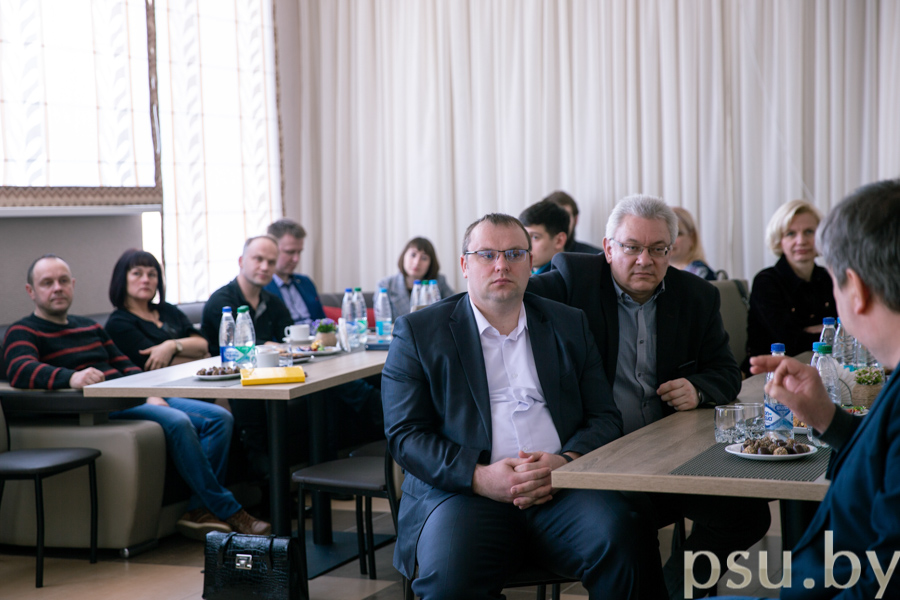
Following the topic of the seminar stated by the Erasmus+ Programme “Fostering Competencies Development in Belarusian Higher Education (FOSTERC)” Irina Buraya and Oksana Golubeva presented their projects. They shared with colleagues the results of introducing a competency-based approach to the educational process at Polotsk State University. Key points of the project were as follows: a focus on major challenges and problems facing real economy, theory-practice interaction, student cooperation to evaluate learning outcomes.
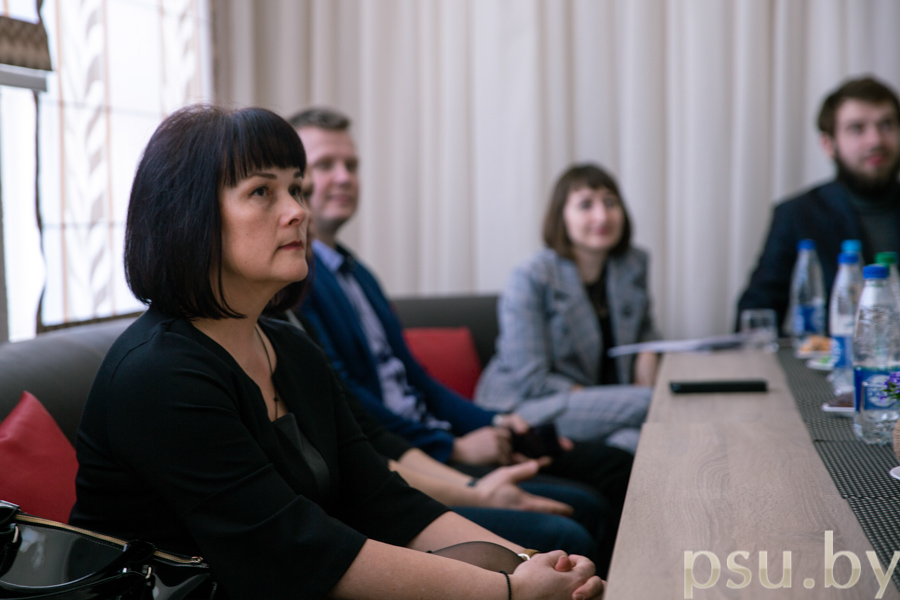
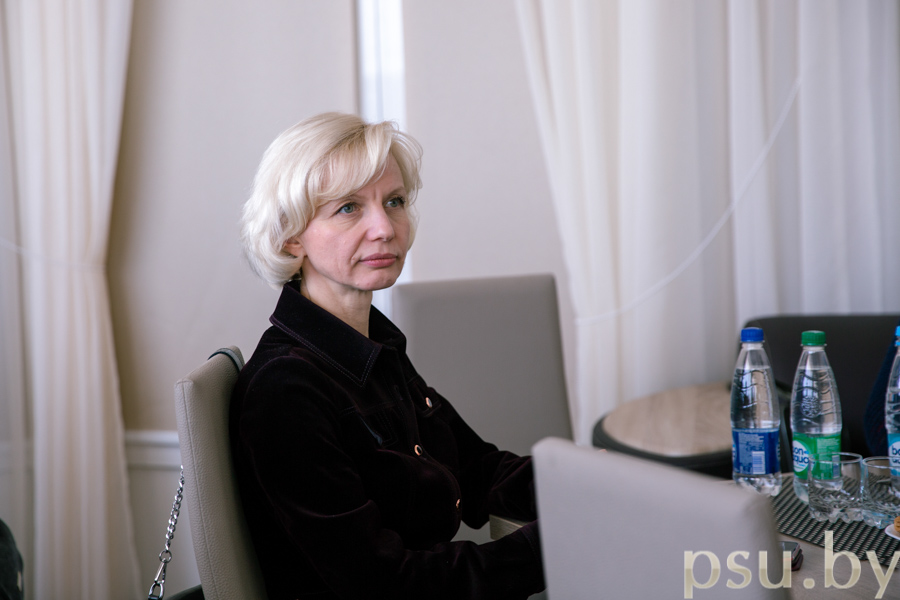
The project of the Erasmus+ Programme “Enhancement of Lifelong Learning in Belarus (BELL)” was presented by Kristina Savitskaya, Aleksey Burachyonok and Alexander Emelyanov. They shared their experience in designing online training courses and analyzed the achieved results and problems requiring solving by joint efforts of Belarusian and European partners to improve the courses created under the project. The speakers dwelt in detail on such important aspects of the course design as methods of conducting training on the MOODLE learning platform, criteria of knowledge assessment, copyright compliance policy, the use of links to external sources, creating tutorial videos and encouraging students to study the course. It was noted that within the project, for the first time in Belarus, six universities gained experience in creating and implementing online training courses for a wide range of interested people representing regional communities in the relevant areas of the country.
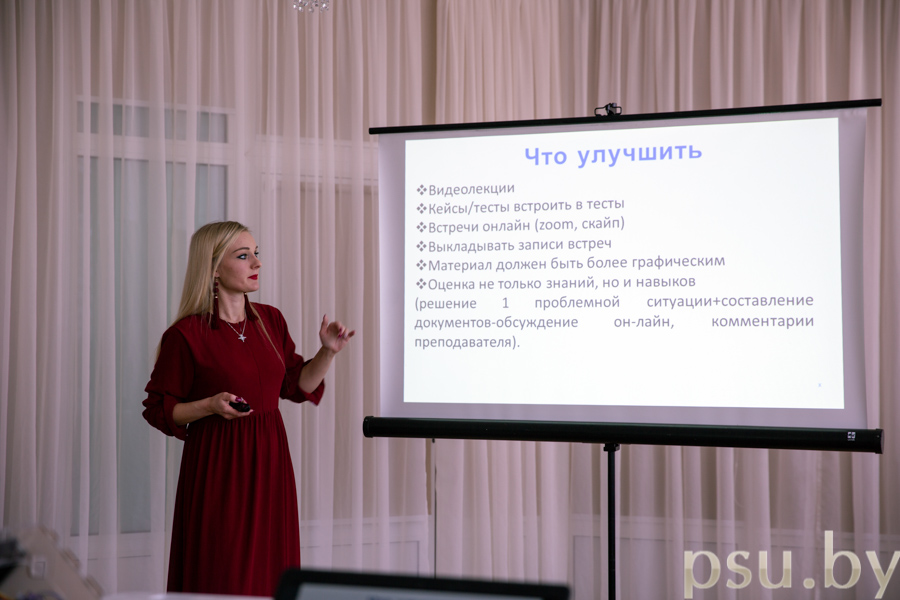
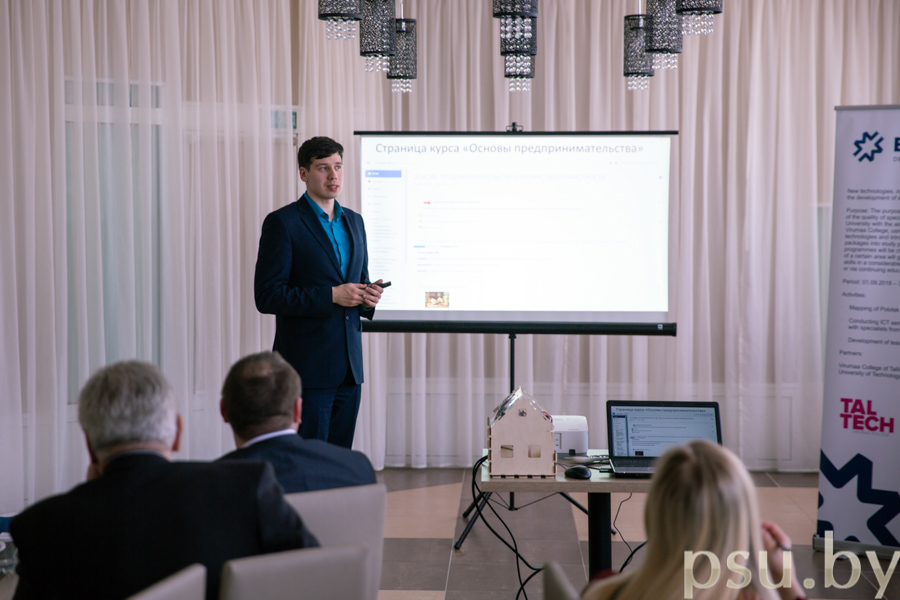
Under the MACICT project of the Erasmus+ Programme Tatiana Gluhkova and Svetlana Ostapchuk pointed out that interdisciplinarity, student centrism, practice-oriented approach and, after all, achieving the learning outcomes needed in the labor market of ICT-specialists are key aspects in creating new courses and improving existing ones. Particular attention was paid to such important aspects of modern higher education as didactic techniques of conceptual education and pedagogical reflection, which aroused keen interest among the seminar participants. Observation, self-control and self-report, problem/situation analysis and brainstorming, as well as concept learning make it possible to fulfill purposes and objectives of learning and achieve best results.
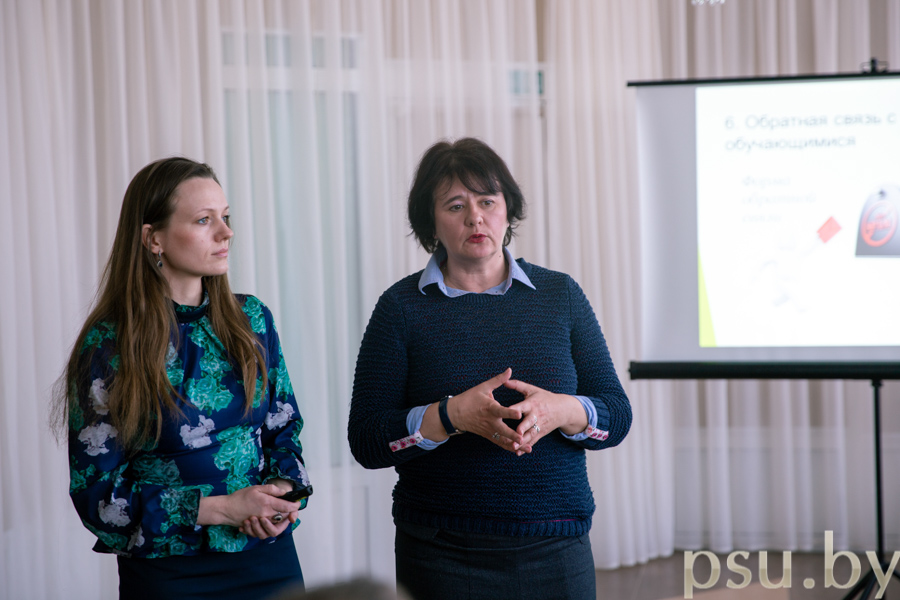
Besides, Tatiana Gluhkova and Svetlana Ostapchuk presented their pedagogical materials developed as part of the STIMEY project funded by HORIZON 2020 programme. The developed materials make students of different ages, including 17 and 18-year-olds, have a real interest in forming interdisciplinary skills for sustainable critical thinking and creativity.
The Department of Technology and Equipment of Oil and Gas Processing together with the Department of Chemical Engineering at Virumaa College of Tallinn University of Technology designed a course “Theoretical Chemistry”. The Department of Software Engineering and the Department of Computer Systems and Networks together with the Department of ICT at Virumaa College of TalTech (Estonia) designed a course “Smart Environment”. Elena Molotok, Tatiana Rudkova and Alexander Lukyanov shared the results of creating these courses.
Dmitry Antonovich gave a general overview of the results of the joint Belarusian-Estonian project, summarizing valuable acquisitions, active research work between the Polotsk and Tallinn colleagues and results of the professional communication while working on the project.
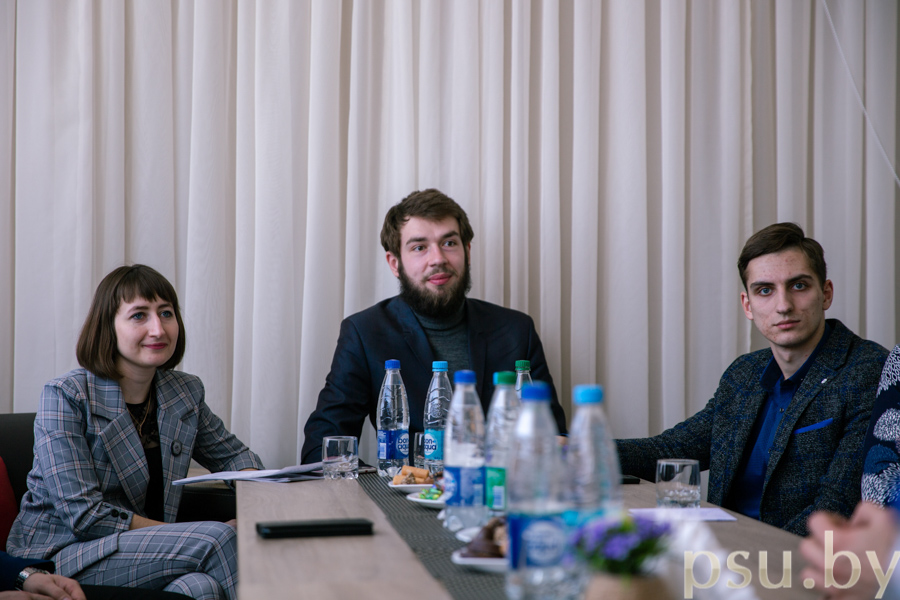
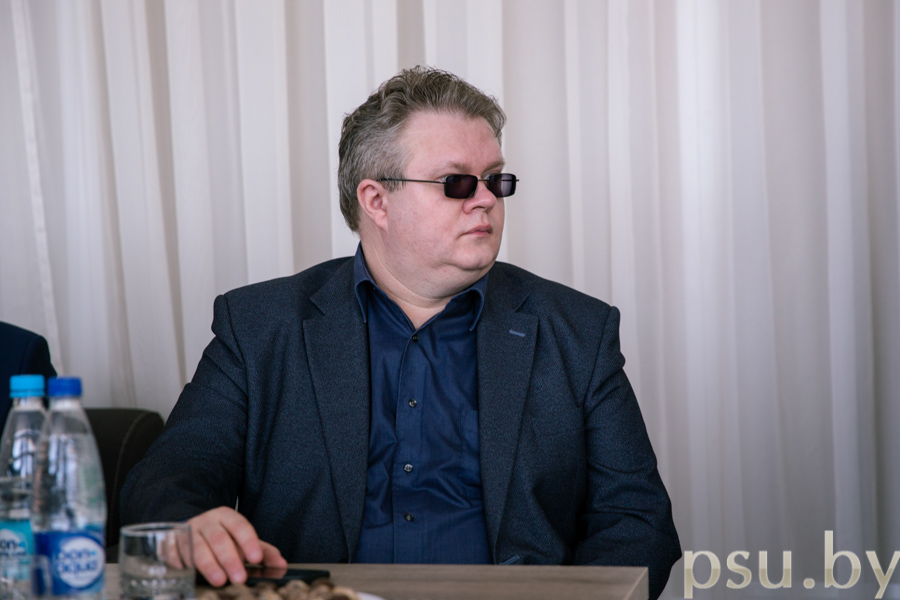
Yury Golubev, Vice-Rector for Science, notes that having such a wonderful team of specialists deeply committed to their work, the university can completely improve international cooperation and achieve academic excellence. The university creates the conditions for this at the international level, both in education and science.
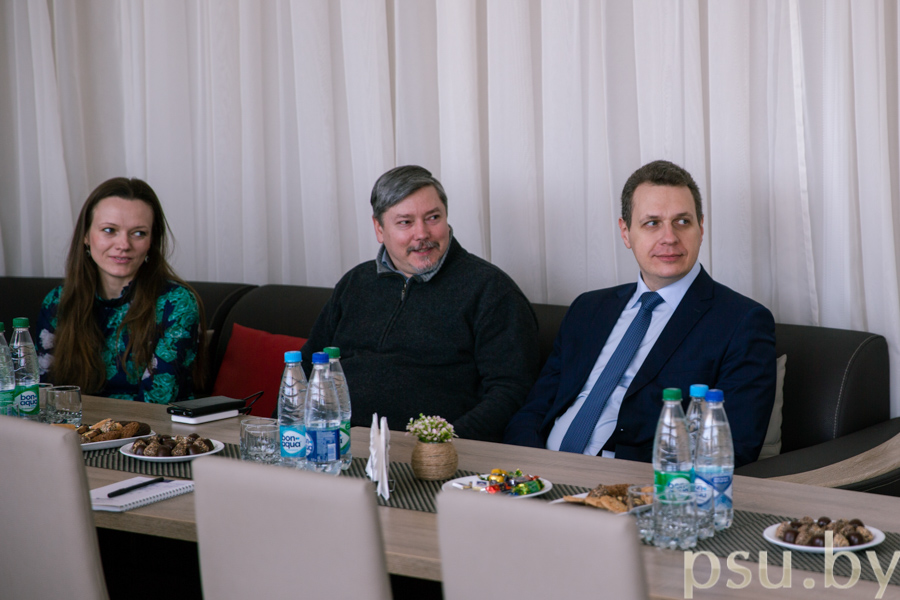
Siarhei Piashkun, Head of the International Office
Photos by Ilya Suzdalev